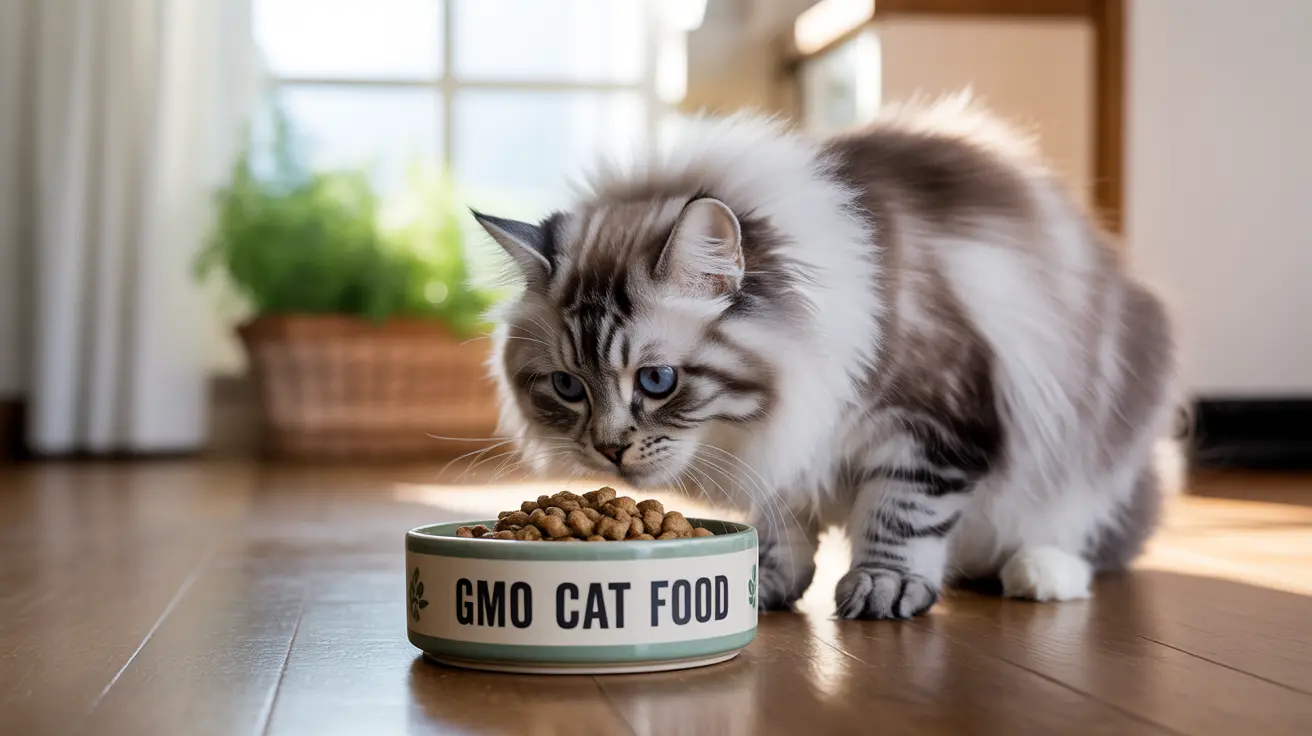As pet owners become increasingly conscious about their cats' nutrition, the topic of GMOs (Genetically Modified Organisms) in cat food has sparked significant discussion. Whether you're exploring different food options for your feline friend or simply wanting to make informed decisions about their diet, understanding GMOs in cat food is essential for every cat owner.
In this comprehensive guide, we'll explore what GMOs mean for your cat's food, examine their safety and benefits, and help you make an educated choice about your pet's nutrition.
What Are GMOs in Cat Food?
GMOs in cat food typically refer to ingredients derived from crops that have been genetically modified to enhance certain characteristics. Common GMO ingredients found in cat food include corn, soy, and canola oil. These modifications are designed to improve crop yields, increase nutritional value, or enhance resistance to pests and diseases.
Most commercial cat foods contain some GMO ingredients unless specifically labeled as non-GMO or organic. These ingredients serve various purposes, from providing protein and essential nutrients to acting as binding agents in dry kibble.
The Science Behind GMO Safety in Cat Food
Scientific consensus, backed by extensive research and regulatory oversight, indicates that GMO ingredients in cat food are as safe as their non-GMO counterparts. The FDA and other regulatory bodies carefully evaluate GMO ingredients before approving them for use in pet food products.
Multiple studies have shown no adverse health effects in cats consuming GMO ingredients. The proteins and DNA from GMO crops are broken down during digestion, just like any other food component, and do not affect your cat's genetic makeup.
Benefits of GMO Ingredients in Cat Food
GMO ingredients offer several advantages in pet food production:
- Enhanced nutritional profiles
- Improved food security through better crop yields
- More affordable pet food options
- Reduced environmental impact through decreased pesticide use
- Better consistency in ingredient quality
Non-GMO Alternatives and Considerations
For pet owners who prefer to avoid GMOs, there are numerous non-GMO and organic cat food options available. These products typically use alternative protein sources and natural ingredients, though they often come at a higher price point.
When choosing non-GMO cat food, look for certifications such as:
- USDA Organic certification
- Non-GMO Project Verified seal
- Natural Products Association certification
Making the Right Choice for Your Cat
The decision between GMO and non-GMO cat food should be based on several factors, including your cat's specific health needs, your budget, and your personal values. Consulting with your veterinarian can help you make an informed choice that best serves your cat's nutritional requirements.
Remember that regardless of your choice, the most important factors are ensuring your cat receives complete and balanced nutrition, and monitoring their health and well-being.
Frequently Asked Questions
What are GMOs in cat food, and are they safe for my cat to consume?
GMOs in cat food are ingredients from crops that have been genetically modified to enhance certain traits. According to scientific research and regulatory bodies like the FDA, GMO ingredients in cat food are just as safe as non-GMO ingredients and undergo rigorous safety testing before approval.
How do I identify GMO ingredients in cat food, and what are the alternatives?
GMO ingredients commonly include corn, soy, and canola. To avoid GMOs, look for products labeled "Non-GMO Project Verified" or "USDA Organic." Alternative options include organic cat foods and those made with non-GMO ingredients.
Are non-GMO cat foods more nutritious or safer than GMO cat foods?
Research shows no significant nutritional difference between GMO and non-GMO cat foods. Both types can provide complete nutrition when properly formulated, and safety studies have found no evidence that GMO ingredients pose any additional risks.
Can GMOs in cat food cause allergies or digestive issues in cats?
Scientific evidence does not support claims that GMO ingredients cause more allergies or digestive issues than non-GMO ingredients. If your cat experiences food sensitivities, they're more likely related to specific proteins or ingredients rather than their GMO status.
How do I choose between GMO and non-GMO cat food based on my cat's health needs and environmental concerns?
Consider your cat's specific health requirements, budget, and your environmental values. Consult with your veterinarian to determine the best option. Both GMO and non-GMO foods can be environmentally responsible choices when produced by reputable manufacturers.






